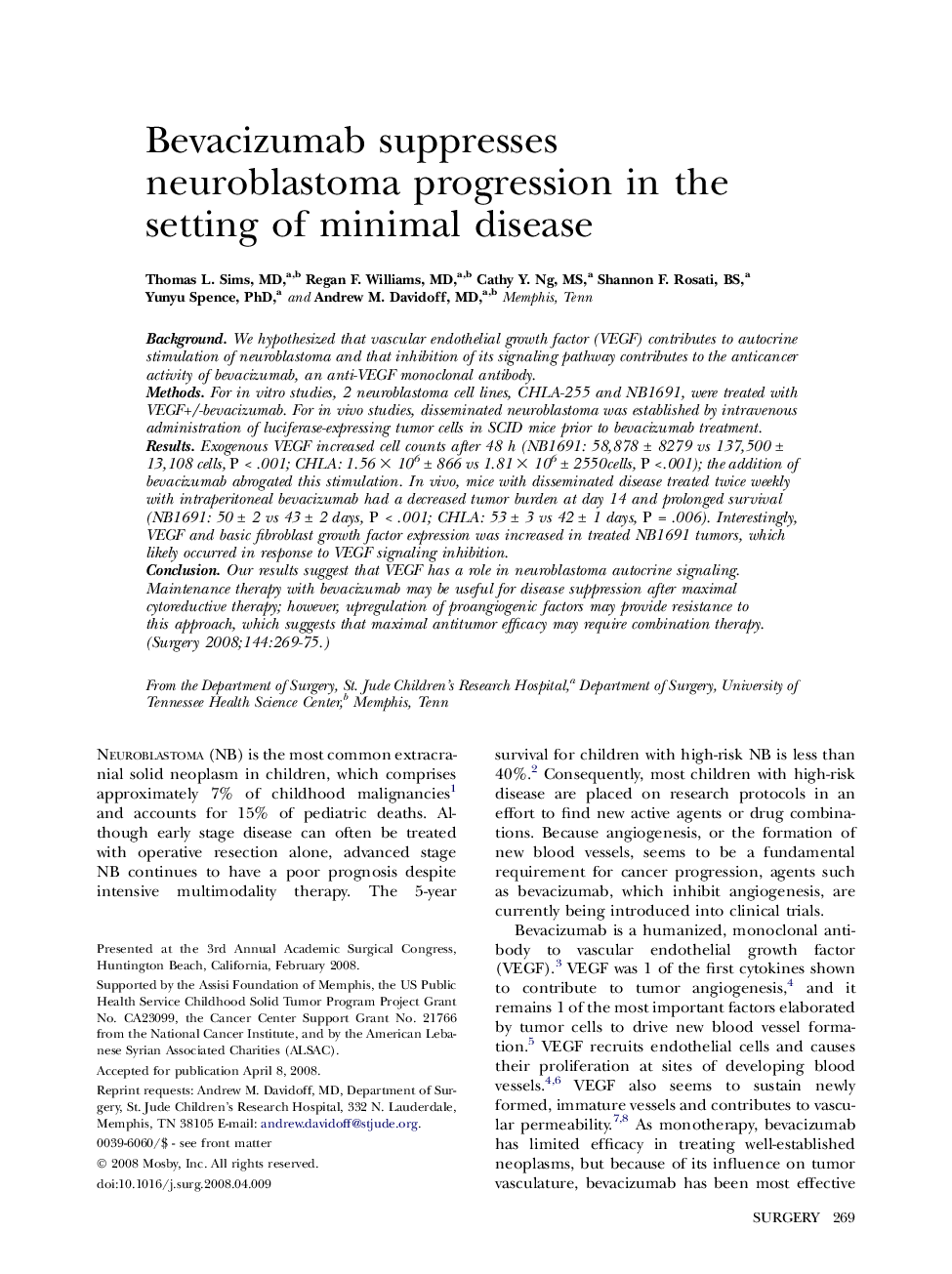| Article ID | Journal | Published Year | Pages | File Type |
|---|---|---|---|---|
| 4309463 | Surgery | 2008 | 7 Pages |
BackgroundWe hypothesized that vascular endothelial growth factor (VEGF) contributes to autocrine stimulation of neuroblastoma and that inhibition of its signaling pathway contributes to the anticancer activity of bevacizumab, an anti-VEGF monoclonal antibody.MethodsFor in vitro studies, 2 neuroblastoma cell lines, CHLA-255 and NB1691, were treated with VEGF+/-bevacizumab. For in vivo studies, disseminated neuroblastoma was established by intravenous administration of luciferase-expressing tumor cells in SCID mice prior to bevacizumab treatment.ResultsExogenous VEGF increased cell counts after 48 h (NB1691: 58,878 ± 8279 vs 137,500 ± 13,108 cells, P < .001; CHLA: 1.56 × 106 ± 866 vs 1.81 × 106 ± 2550cells, P <.001); the addition of bevacizumab abrogated this stimulation. In vivo, mice with disseminated disease treated twice weekly with intraperitoneal bevacizumab had a decreased tumor burden at day 14 and prolonged survival (NB1691: 50 ± 2 vs 43 ± 2 days, P < .001; CHLA: 53 ± 3 vs 42 ± 1 days, P = .006). Interestingly, VEGF and basic fibroblast growth factor expression was increased in treated NB1691 tumors, which likely occurred in response to VEGF signaling inhibition.ConclusionOur results suggest that VEGF has a role in neuroblastoma autocrine signaling. Maintenance therapy with bevacizumab may be useful for disease suppression after maximal cytoreductive therapy; however, upregulation of proangiogenic factors may provide resistance to this approach, which suggests that maximal antitumor efficacy may require combination therapy.
